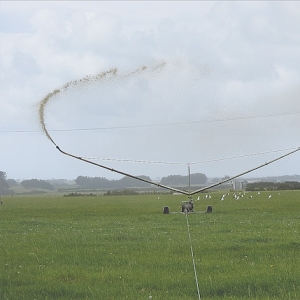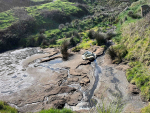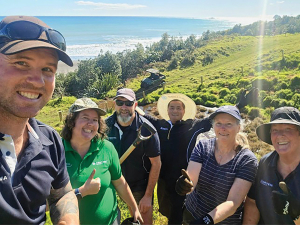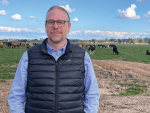DAIRY FARM effluent grows in value as fertiliser prices rise, says Waikato Regional Council. In its publication ‘Effluent management; for the health of our waterways and groundwater’, the council urges farmers to treat effluent as a fertiliser, but carefully because it lacks balance, being very high in potassium.
“This can lead to higher leaching levels of magnesium and subsequent animal health problems if potassium soil test levels are high. You can manage this risk by increasing the effluent area or by making silage on the effluent area and feeding it out on non-effluent areas of the farm.”
Applying shed effluent at light rates will ensure stock feed intakes are not adversely affected.
Managing dairy effluent is also necessary for the health of waterways and groundwater, so knowing the regional council’s rules for effluent management is important.
Under the Waikato Regional Plan farmers cannot exceed 25mm per application and 150kg of nitrogen from effluent per hectare per year.
“So you need to know how much your irrigator is applying and how concentrated your effluent is,” the council says.
Dairy effluent must not discharge into surface water or contaminate groundwater. Farms able to store effluent before it is applied to land means effluent doesn’t have to be applied during wet periods when the risk of surface ponding and run-off is high.
This substantially reduces the risk of overflows to surface water and plant nutrient uptake is maximised.
Many benefits in right pond size
EFFLUENT STORAGE facilities should be correctly sized for a farm’s systems and management, and they should be sealed.
Having adequate storage allows a farm to:
- Defer irrigation in wet weather
- Lower the risk of ponding, run-off and leaching in wet weather
- Irrigate when plant uptake is maximised
- Irrigate in dry weather
- Store effluent during mechanical breakdown
- Endure less stress during busy times, e.g. calving.
- Increasing a farm’s effluent area allows the farmer to:
- Spread nutrients further, reducing fertiliser requirements and associated costs
- Slow the build-up of potassium in effluent paddocks which can lead to animal health problems in the early spring
- Have more flexibility in grazing between effluent applications and safer withholding periods prior to grazing.











